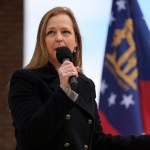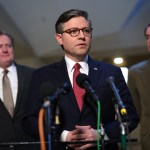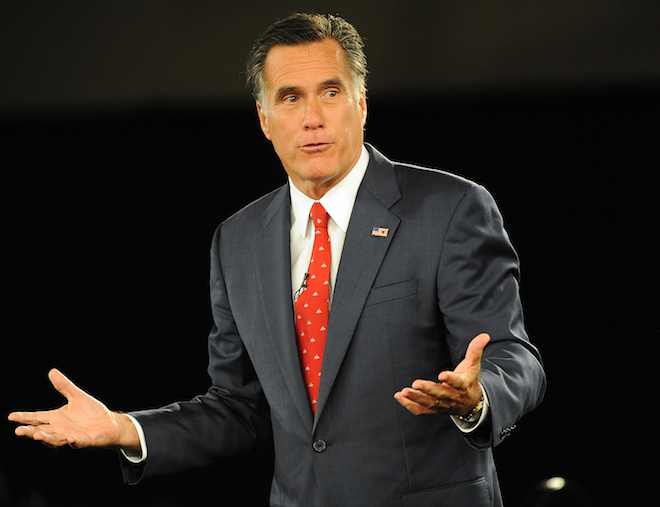Last night’s Social Security exchange made clear that Mitt Romney is fashioning himself as the electable moderate in contrast with the more extreme Rick Perry. But it’s not just on entitlements where Romney is sending that message, his recent focus on the economy fits the dynamic as well.
Looking to draw attention to his campaign’s core message, his business know-how, he recently released a detailed economic plan and named a surprisingly credible set of advisers to his campaign. Maybe a little too credible, actually.
Romney’s team of economic wonks includes former George W. Bush aides Glenn Hubbard and Gregory Mankiw, former Senator Jim Talent, and former Congressman Vin Weber, who also co-chaired Tim Pawlenty’s presidential campaign. All have plenty of experience working on policy for Republican leaders, but with the GOP increasingly drawing its energy from the populist right, some of them hold positions that are considered heretical today.
The widely respected Mankiw, who advised Romney on his first presidential run as well, is being singled out by critics and fans alike for his more independent views. He is a strong defender of climate change science and has advocated for a carbon tax to reduce emissions. In a 2007 New York Times op-ed, he expressed deep frustration that “political consultants” were preventing voters from seeing the light on the issue.
As the architect of the 2003 Bush tax cut, Glenn Hubbard’s conservative credentials are solid enough, but Reuter’s James Pethokoukis notes that he supported cap and trade a few years ago when Republicans were briefly turning green. He now backs a similar carbon tax as Mankiw.
Over at the Washington Post, Ezra Klein points out that among Romney’s advisers “three of the four are on-the-record supporting deals that would raise taxes.” Mankiw backed a gas tax, Hubbard supports closing loopholes (which Grover Norquist says violates his no-tax pledge), and Weber supported the Bowles-Simpson plan for deficit reduction that included a tax increase. The current Republican presidential field has unanimously gone on record opposing any increase in taxes, even if paired with ten times the amount in spending cuts.
Then there’s the Federal Reserve. Perry has gone after it in no uncertain terms, even suggesting chair Ben Bernanke would be “almost treasonous” if he continued an expansionary monetary policy. The GOP, traditionally the Fed’s best friend, has shifted radically against it since the financial crisis. Romney’s clearly aware of this, telling the audience at Wednesday’s debate that he would not reappoint Bernanke after he “overinflated the amount of currency he has created.” Mankiw, however, is one of Bernanke’s most prominent defenders, recently penning an op-ed in the New York Times rebutting Republican criticisms of his tenure.
Romney’s own economic plan is solidly conservative, with no tax increases and proposals to reduce regulation and cut spending. Meanwhile, his advisers’ impressive resumes send a message to establishment Republicans that he’s serious about the economy. But those same advisers’ various brushes with respectability could come back to hurt him if his opponents decide to go on the offensive.









